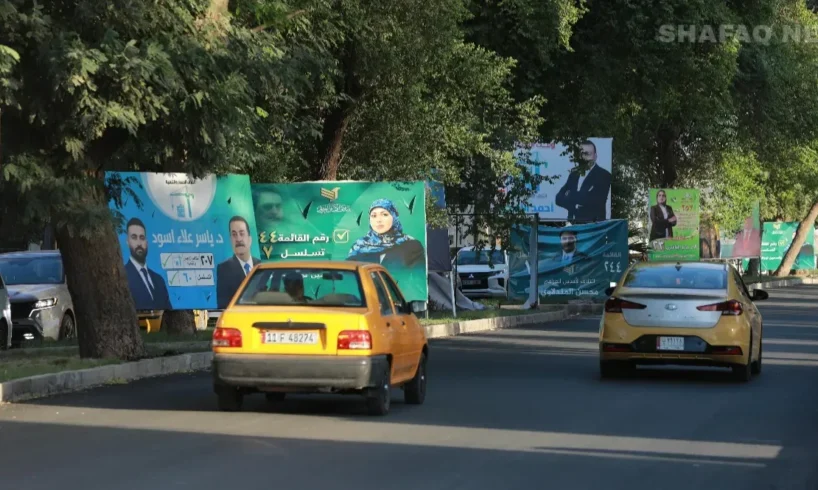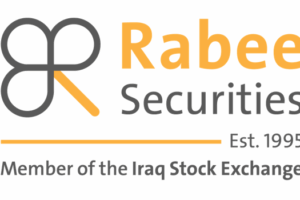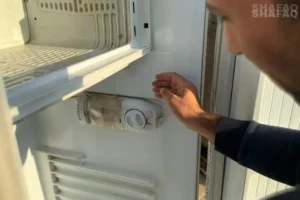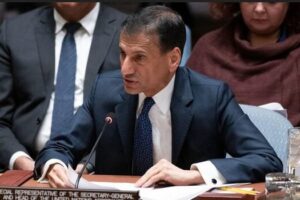
Shafaq News
Iraq’s election
campaign season has transformed Baghdad and its streets into a patchwork of
political banners and billboards, stirring frustration among residents who
argue the visual clutter is undoing years of costly beautification efforts.
Street Beauty Lost
University student
Ruba al-Janabi, 22, feels irritated by what she describes as “provocation and distortion”
every time she walks through Abu Nuwas Street in Baghdad’s central al-Karrada
district, where a “chaotic” wave of campaign posters now covers the street’s
newly restored landscape.
“It’s every
candidate’s right to promote themselves and present their platform within the
law,” al-Janabi remarked to Shafaq News. “But what’s happening now is a real
distortion and damage to the streets and intersections, sometimes even
provoking citizens.”
Large numbers of
banners, posters, and candidate photos line both sides of the street, its
gardens, and the central divider — upsetting many visitors who view the area as
a popular family destination now marred by visual pollution.
Resident Mahdi Abd
al-Sada observed that election advertising has become a waste of large sums of
money with no real benefit, and needless damage to streets and parks, adding
that campaign materials “have spread densely across public roads, bridges,
squares, and intersections, causing visual annoyance.”
Arguing that people
need real reform programs, not endless posters, Abd al-Sada urged stricter
enforcement of campaign regulations instead of what he described as “the chaos
and randomness that have swept Baghdad’s streets since campaigning began.”
Since October 3rd,
when the parliamentary campaign season officially opened, Baghdad has witnessed
multiple violations of municipal rules on advertising, including damage to
roads and bridges, despite clear guidelines set by the Baghdad Municipality.
Abd al-Sada noted
that excessive advertising often backfires, pointing out that one candidate
covered an entire apartment building with banners — more than 50 signs in one
area.
“That raises serious
questions about the source of their campaign funding and makes voters wary.”
Baghdad’s local
authorities have been working on large-scale reconstruction and beautification
projects, including the rehabilitation of Abu Nuwas Street, known for its
gardens and river views. Campaign materials have undercut these efforts, with
posters and billboards installed in violation of Independent High Electoral
Commission (IHEC) regulations.
Sidewalks and green
spaces along Abu Nuwas have also been damaged by the heavy iron frames used to
support large banners, further frustrating residents and undermining recent
restoration work.
Political science
professor Faisal Abd al-Qudus explained that the government and its
institutions have made major efforts to make Baghdad cleaner and more
attractive through broad reconstruction campaigns, urging “parliamentary
hopefuls to respect the electoral advertising rules set by the election
commission, rather than violate the law and deface the very city they aspire to
represent.”
He also observed that
many bridges, streets, and public squares have been similarly disfigured by
campaign materials, including Abu Nuwas Street, which had recently been
rehabilitated to serve as a social and cultural hub for families.
“There are no
effective legal measures to hold violators accountable apart from fines, which
are too small to deter further violations,” he added.
Fines Fall Short
Under the Iraqi
Electoral Law, IHEC imposes financial penalties on candidates and coalitions
that breach campaign regulations. Fines typically range from 250,000 to 1 million
Iraqi dinars ($190 to $760), depending on the severity and recurrence of the
violation. More serious breaches, such as defacement of public property or
placement on restricted sites, can incur fines up to 5 million dinars ($3,800),
while repeated violations may lead to the removal of campaign privileges or
referral to judicial authorities.
Additional penalties
include fines for misuse of official positions up to 10 million Iraqi dinars
($7,600), launching campaigns before the official start date, which can result
in fines ranging from 2 to 5 million dinars ($1,500 to $3,500), and increased
fines for repeat offenders, which may include doubled fines or even
disqualification.
These fines are
generally deducted from the campaign deposits submitted by candidates when
registering with the IHEC. If a fine exceeds the deposit, candidates must pay
the remaining balance before their candidacy is certified. Persistent violators
may also face temporary suspension of campaign permits.
In recent
developments, the IHEC has recorded 350 campaign violations, with fines ranging
from 2 to 10 million Iraqi dinars ($1,500 to $7,600). Approximately 120 of
these violations occurred before the official campaign period began on October
3.
The Baghdad
Municipality has issued eight recommendations for campaign advertising, while
the IHEC formed teams to monitor and penalize violators.
Municipality
Spokesman Uday al-Jundil explained that the rules ban posters glued to walls or
affixed with cement, and prohibit using traffic signs, public gardens, or
medians for campaign materials. He mentioned that the regulations also forbid
placing ads on government buildings, schools, universities, mosques,
husseiniyas, holy sites, bridges, heritage landmarks, and public monuments.
‘’Campaign materials
must use easily removable materials, such as cloth or light metal and wooden
frames.’
Al-Jundil noted that
municipal teams document and immediately remove violations, imposing fines on
candidates or political coalitions, and referring cases to the municipality’s
deputy office for follow-up with the IHEC, which can deduct fines from campaign
deposits.
Read more: Vote-buying casts shadow over Iraq’s 2025 elections
Blame the System
Candidates, however,
blame authorities for what they describe as disorganized campaign management,
arguing that no suitable locations were provided for legal poster placement.
One female candidate,
who asked not to be named, told Shafaq News that “the authorities put us in an
awkward position’’ — they banned street and wall posters without designating
proper alternatives.
“In Europe, such as
France, each street has a shared public panel for candidates’ posters, which
avoids defacing the city and saves money,” she added.
She explained that
the restrictions have sparked disputes among campaign teams, stressing that
“The few legal locations available are too small for thousands of posters,
leading to arguments — even fights — between rival teams over space.”
She mentioned that
using modern advertising methods, such as digital screens on buildings and
malls, costs between 5 and 7 million dinars ($3,800 to $5,300) per candidate
for each screen — “a steep price for newcomers whose total campaign budgets
barely exceed 14 million dinars ($10,600).”
Read more: Iraq’s 2025 Parliamentary Elections — What You Need to Know
Written and edited by
Shafaq News staff.





